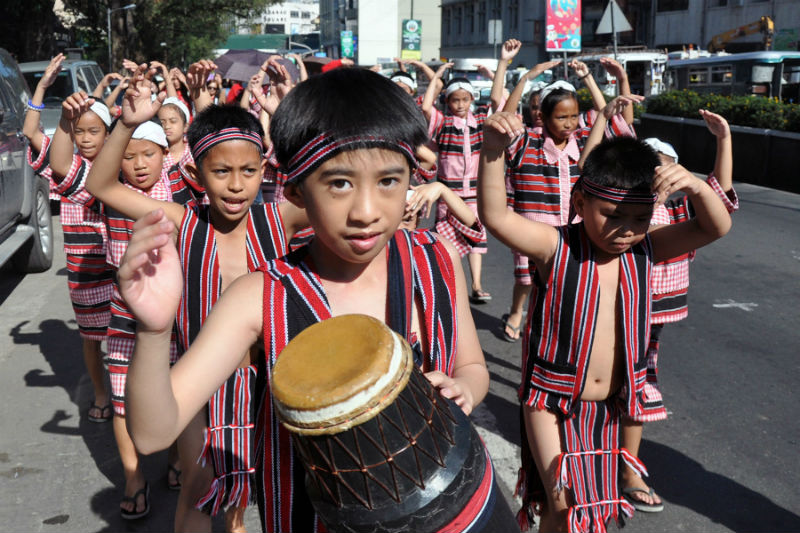The Coronavirus Disease of 2019 (COVID-19) scare has caused people to spread information that caused many to be misled.
Here are some of the myths about COVID-19 and World Health Organization’s (WHO) response to debunk them:
Part 2:
The COVID-19 virus is transmitted by mosquitoes
False. To date there has been no information nor evidence to suggest that the new coronavirus could be transmitted by mosquitoes.
The new coronavirus is a respiratory virus which spreads primarily through droplets generated when an infected person coughs or sneezes, or through droplets of saliva or discharge from the nose.
Eating garlic helps prevent COVID-19
Garlic is a healthy food that may have some antimicrobial properties. However, there is no evidence from the current outbreak that eating garlic has protected people from the new coronavirus.
The new coronavirus affects only older people
No. People of all ages can be infected by the new coronavirus (2019-nCoV). Older people, and people with pre-existing medical conditions (such as asthma, diabetes, heart disease) appear to be more vulnerable to becoming severely ill with the virus.
WHO, however, advises people of all ages to take steps to protect themselves from the virus.
Antibiotics are effective in preventing and treating COVID-19
No. antibiotics do not work against viruses, only bacteria.
The new coronavirus (2019-nCoV) is a virus and, therefore, antibiotics should not be used as a means of prevention or treatment.
However, if you are hospitalized for the 2019-nCoV, you may receive antibiotics because bacterial co-infection is possible.
Thermal scanners can detect people infected with the new coronavirus
False. Thermal scanners are effective in detecting people who have a fever because they have a higher than normal body temperature.
This doesn’t necessarily mean they have infection with the new coronavirus as having fever may be induced lots of other causes.
People who are infected with COVID-19 takes between 2 and 10 days before possibly become sick and develop a fever.
Spraying alcohol or chlorine all over your body will kill the new coronavirus
False. No. Spraying alcohol or chlorine all over your body will not kill viruses that have already entered your body. Spraying such substances can be harmful to clothes or mucous membranes like eyes and mouth.
Be aware that both alcohol and chlorine can be useful to disinfect surfaces, but they need to be used under appropriate recommendations.
Hand dryers effective in killing the new coronavirus
No. Hand dryers are not effective in killing the 2019-nCoV. Warm air dryers are only a secondary measure to the washing of hands measure.
Frequently cleaning your hands with an alcohol-based hand rub or wash them with soap and water is the best way to remove the virus from your hands.
Dry them thoroughly by using paper towels or a warm air dryer is only done once your hands are cleaned.
An ultraviolet disinfection lamp kill the coronavirus
False. UV lamps should not be used to sterilize hands or other areas of skin as UV radiation can cause skin irritation.
Regularly rinsing your nose with saline help prevent COVID-19 infection
No. There is no evidence that regularly rinsing the nose with saline (Saline solution is a mixture of salt and water) has protected people from infection with the new coronavirus.
There is some limited evidence that regularly rinsing nose with saline can help people recover more quickly from the common cold. However, regularly rinsing the nose has not been shown to prevent respiratory infections.
Vaccines against pneumonia protects against the new coronavirus
No. Vaccines against pneumonia, such as pneumococcal vaccine and Haemophilus influenza type B (Hib) vaccine, do not provide protection against the new coronavirus.
The virus is so new and different that it needs its own vaccine. Researchers are trying to develop a vaccine against 2019-nCoV, and WHO is supporting their efforts.
Although these vaccines are not effective against 2019-nCoV, vaccination against respiratory illnesses is highly recommended to protect your health.
There are medicines to prevent or treat COVID-19
False. To date, there is no specific medicine recommended to prevent or treat the new coronavirus (2019-nCoV).
However, those infected with the virus should receive appropriate care to relieve and treat symptoms, and those with severe illness should receive optimized supportive care.
Some specific treatments are under investigation, and will be tested through clinical trials. WHO is helping to accelerate research and development efforts with a range or partners.
Part 1:
Drinking gin, beer or any form of alcohol protect one against COVID-19
How good it is for the generally gin/beer loving male community of Cordillera is this were true! Sorry, it simple isn’t.
There is no evidence yet that would confirm this theory. In fact, WHO emphasized that frequent or excessive alcohol consumption can increase one’s health problems risk.
As frequently said, drinking alcohol in moderation is advised whenever it could not be avoided but even doing so is no guarantee that one would not be catching COVID-19.
The best way to protect oneself against COVID-19 is by frequently cleaning hands. By doing this, one will eliminate viruses that may be on their hands and avoid infection that could occur by then touching the eyes, mouth, and nose.
COVID-19 virus cannot be transmitted in areas with hot and humid climates
According to WHO, the COVID-19 virus can be transmitted in ALL AREAS, including areas with hot and humid weather based on gathered evidence so far.
Regardless of climate one live in or travelling to, especially an area reporting COVID-19, it is still best to adopt protective measures.
Cold weather kills the new coronavirus.
Conversely, There is no reason to believe that cold weather can kill the new coronavirus. [Baguio City, known for its cool climate, is not safe from transmission of the disease as evidenced by the positive case in the area.]
The normal human body temperature remains around 36.5°C to 37°C, regardless of the external temperature or weather.
Frequent cleaning of hands with alcohol-based hand rub can be an alternative way to prevent transmission of the virus if the water is too cold.
Exposing one to the sun or to temperatures higher than 25C degrees prevents one from catching COVID-19
This is simply not true, according to WHO. One can catch COVID-19, no matter how sunny or hot the weather is. Areas with hot weather [like Metro Manila] have reported cases of COVID-19.
Taking a hot bath prevents COVID-19
Taking a hot bath will NOT prevent one from catching COVID-19. The normal body temperature still remains around 36.5°C to 37°C, regardless of the temperature of the bath or shower taken.
Actually, taking a hot bath with extremely hot water can be harmful, as it can burn one’s skin.
Infection from COVID-19 means a death sentence or having it for life
False. Evidence shows while there are deaths of people inflicted with the disease, many also recover from it. Most of the people who catch COVID-19 can recover and eliminate the virus from their bodies.
If you catch the disease, make sure you treat your symptoms. If you have cough, fever, and difficulty breathing, seek medical care early. It is advisable to call your health facility by telephone first.
Most patients recover do recover with supportive care.
Being able to hold your breath for 10 seconds or more without coughing or feeling discomfort is a sign that one is free from COVID-19
False. Being able to hold breath for 10 seconds or more DOES NOT mean one does not have COVID-19, or any other lung disease for that matter.
The most common symptoms of COVID-19 are dry cough, tiredness and fever. Some people may develop more severe forms of the disease, such as pneumonia. The best way to confirm if you have the coronavirus is with a laboratory test. You cannot confirm it with this breathing exercise, which can even be dangerous.
Facts about COVID-19 lifted from World Health Organization website.
By: Armando M. Bolislis















